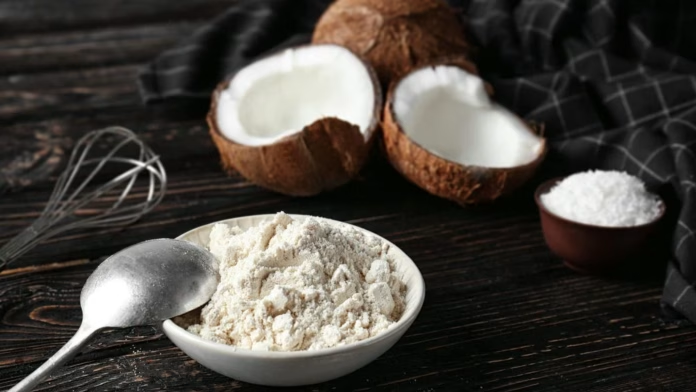In recent years, there has been a significant rise in the number of children diagnosed with gluten sensitivity, also known as non-celiac gluten sensitivity (NCGS). Gluten, a protein found in wheat, barley, and rye, can cause adverse reactions in individuals with NCGS, leading to various gastrointestinal and extra-intestinal symptoms. For parents seeking alternative dietary options to support their children’s health, coconut flour has emerged as a potential game-changer. This article aims to explore the benefits of coconut flour as a gluten-free alternative and its potential to alleviate symptoms in children struggling with gluten sensitivity.
Understanding Gluten Sensitivity:
Gluten sensitivity is a condition characterized by adverse reactions to gluten ingestion, causing symptoms similar to those seen in celiac disease but without the presence of the characteristic immune response or damage to the small intestine. Common symptoms include bloating, abdominal pain, diarrhea, constipation, headaches, fatigue, and skin issues. The exact prevalence of NCGS remains uncertain, but studies suggest that it affects a significant number of children worldwide.
Coconut Flour: An Overview:
Coconut flour is derived from the meat of coconuts and is gaining popularity as a gluten-free alternative to traditional wheat flour. It is made by drying the coconut meat, grinding it into a fine powder, and removing the oil. Coconut flour is naturally low in carbohydrates, high in fiber, and contains beneficial fats and proteins. These nutritional characteristics make it an attractive option for children with gluten sensitivity.
Benefits of Coconut Flour for Children with Gluten Sensitivity:
- Gluten-free Alternative:
Coconut flour is naturally gluten-free, making it a safe option for children with gluten sensitivity. By replacing wheat flour with coconut flour in recipes, parents can provide their children with delicious gluten-free alternatives while avoiding the triggers that cause adverse reactions.
- High Fiber Content:
One of the significant advantages of coconut flour is its high fiber content. Fiber plays a crucial role in maintaining digestive health, regulating bowel movements, and promoting satiety. Children with gluten sensitivity often struggle with digestive issues, and incorporating coconut flour into their diet can help alleviate constipation or diarrhea commonly associated with gluten consumption.
- Nutritional Value:
Coconut flour contains essential vitamins and minerals, including iron, potassium, and magnesium. These nutrients are vital for children’s growth and development, ensuring their bodies receive the necessary nourishment while following a gluten-free diet. Additionally, coconut flour is rich in healthy fats, which can support brain development and overall well-being.
- Lower Glycemic Index:
Coconut flour has a lower glycemic index compared to traditional wheat flour. This means it has a slower and more controlled impact on blood sugar levels, which is particularly beneficial for children with gluten sensitivity who may also have diabetes or pre-diabetic conditions. By incorporating coconut flour into their meals, parents can help manage blood sugar levels and maintain stable energy throughout the day.
- Versatile in Cooking and Baking:
Coconut flour’s versatility makes it an excellent option for various recipes, from savory dishes to baked goods. Its unique texture and absorption properties may require some adjustments to recipes, such as increasing the number of eggs or liquids used. However, with experimentation and recipe adaptations, parents can create gluten-free meals and treats that are both nutritious and enjoyable for their children.
- Allergen Friendly:
In addition to being gluten-free, coconut flour is also nut-free and does not contain common allergens such as wheat, soy, or dairy. This makes it suitable for children with multiple food sensitivities or allergies, expanding their dietary options and reducing the risk of accidental exposure to allergens.
Considerations and Precautions:
While coconut flour holds promise as a gluten-free alternative for children with gluten sensitivity, it is essential to approach dietary changes with caution and consult with healthcare professionals, such as pediatricians or registered dietitians. Each child’s needs and sensitivities may vary, and professional guidance can help ensure a well-balanced and nutritionally adequate diet.
Final Thoughts:
Coconut flour offers an array of benefits as a game-changer for children struggling with gluten sensitivity. As a gluten-free alternative, it provides nutritional value, high fiber content, and a lower glycemic index. Its versatility in cooking and baking, coupled with its allergen-friendly profile, makes it an attractive option for parents seeking dietary alternatives for their children. However, it is crucial to seek professional advice and guidance when making significant changes to a child’s diet. With proper support and knowledge, coconut flour has the potential to improve the quality of life for children with gluten sensitivity, allowing them to enjoy delicious and nourishing meals while managing their health effectively.





